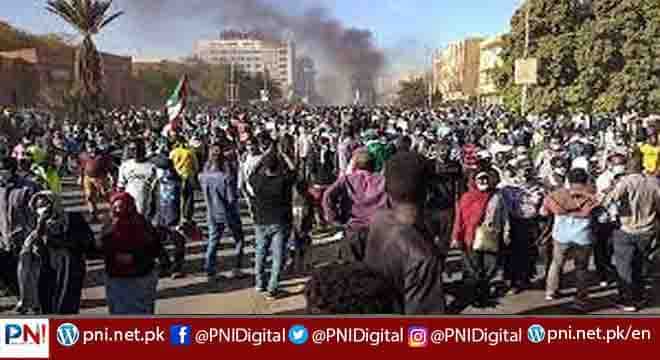N’Djamena, Jan 28 (AFP/APP):Fourteen protesters have been killed amid ethnic tensions in eastern Chad, a government official said Friday, while rights groups said some had died in clashes with the security forces.
Residents of Abeche, the capital of Ouaddai province, protested on Monday against plans to inaugurate a top official who comes from the Arab community in locations traditionally reserved for the sultan of the local Ouaddaien community.
Rights organisations, which have called for an inquiry, said security forces killed some protestors during that first bout of unrest.
Others lost their lives the following day in clashes at the funerals.
A government official, speaking on condition of anonymity, said there were “14 dead and 64 wounded among the demonstrators,” but refused to say who was responsible for the casualties.
“The situation has been calm since yesterday and the tension has dropped,” the official said.
A doctor at the local hospital put the toll at 11 dead and 60 wounded.
The National Commission for Human Rights (CTTDH), an organisation that acts as a go-between between civil society and the government, said that on the first day of the violence, at least five people died and 35 were wounded when security forces “fired live rounds in an attempt to disperse protesters”.
Another group, the Chadian Convention for the Defence of Human Rights (CNDH), said in a statement that “members of the defence and security forces made excessive use of combat weapons on unarmed demonstrators.”
It put the toll at “several” dead in addition to wounded, and said the security forces had also committed “acts of torture”.
The CTTDH and the CNDH called for an investigation into those responsible for the “killings”.
On Thursday, the government dispatched a team to Abeche, the country’s third largest city lying some 800 kilometres (500 miles) from the capital N’Djamena, to try to ease tensions.
– Historic sites –
A vast landlocked country in north-central Africa, Chad has a history of sporadic ethnic friction.
The Ouaddai is a vast semi-desert region near the border with Sudan that was once the heartland of the Ouaddai Sultanate — an empire that existed for nearly three centuries until it was conquered by France in the early 20th century.
Arabs and dark-skinned Ouaddaiens tend to live in separate areas and confrontations are rare, although Abeche, where the historic sites are located, is a potential flashpoint.
The inaugural ceremonies were scheduled to be held on Saturday for a district chief who hails from the Arab community.
A local official said deadly protests broke on Monday out over the choice of venue.
The first choice for the inauguration — the site of a historic royal palace — had been discarded after the Ouaddai community complained that it was used by their traditional sultan.
But violence erupted when a second venue — the city’s Independence Square, which opponents said was also used by the sultan — was announced.
This account was confirmed by the CTTDH.
More deaths resulted at funerals that were held the following day for those who had been killed.
The official at the centre of the dispute, Bachar Younous, became head of the provincial district of Abeche in 2019 but has never had an official ceremony to confirm his appointment.
“We would like to hold the inauguration on Independence Square, but people who are opposed say it shouldn’t take place, ‘because the town doesn’t belong to Arabs, but to Ouaddaiens,’ and we are considered to be intruders,” Younous told AFP by phone on Monday, shortly after the start of the first bout of violence.
Follow the PNI Facebook page for the latest news and updates.









